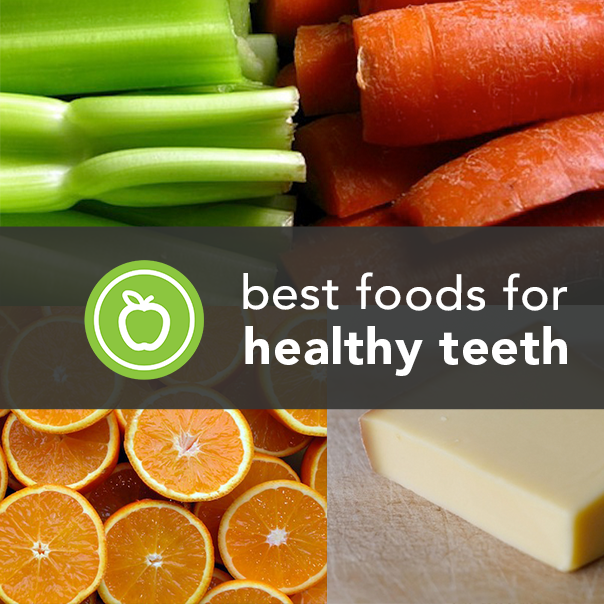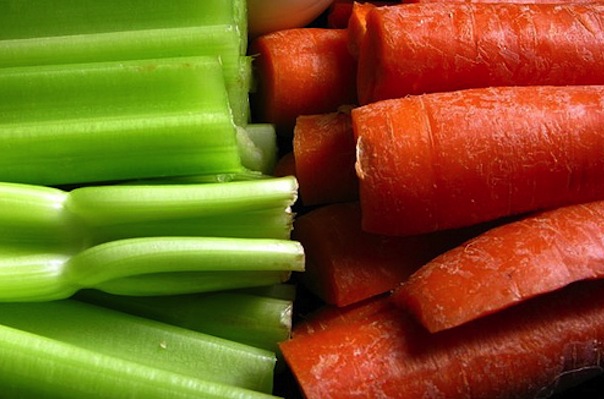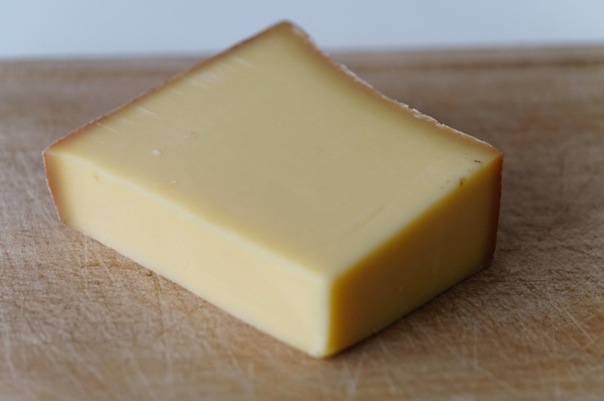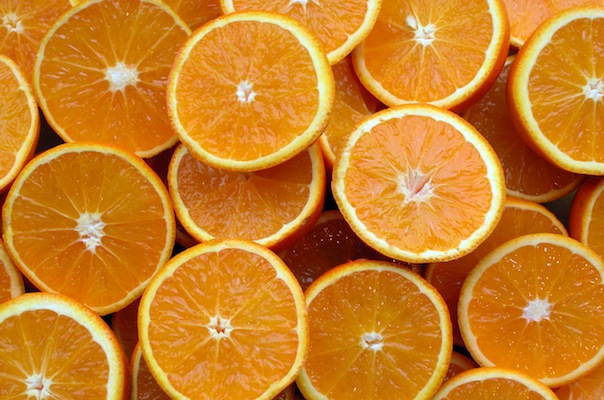 Healthy Teeth — Your Action Plan
Healthy Teeth — Your Action Plan
**Brush twice a day, floss often, use mouthwash…and eat? The secret to healthy teeth for life might be in the refrigerator, not the toothpaste aisle. Certain foods can help prevent cavities and tooth decay, keep plaque
(sticky bacteria that can cover the teeth and gums) at bay, and even
freshen breath. Read on to learn how to impress the dentist by
incorporating tooth-friendly foods into every meal.**
Score Essential Minerals
Without enamel, biting into a crunchy apple would be downright painful. The hard, durable white covering protects the delicate nerves, connective tissues, and blood vessels that make up the inner layers of each tooth. Keeping enamel strong is an ongoing process, especially because acids and sugars found in foods can wear down the minerals that form enamel.Snacking on foods rich in calcium and phosphorus can protect tooth enamel and even help replace minerals in teeth (a process called remineralization) after acids wear down enamel. Grab one of these options to keep chompers healthy and strong.
- Low-fat cheese, milk, and yogurt (avoid varieties with lots of added sugar) are classic calcium-rich choices. Cheese is especially beneficial because it contains casein, a protein that can shore up enamel .
- Meat, fish, and tofu are loaded with phosphorus, another important mineral that may protect tooth enamel . Homemade broth made from meat bones is a particular good source of this essential mineral.
- Looking for vegetarian-friendly sources for these minerals? Broccoli, bok choy, and other dark, leafy veggies (for example kale, spinach, mustard or collard greens) are excellent animal-free ways to get plenty of vitamins and minerals, though their connection to tooth health is less clear..
Eat Plenty of Water
Just like those hammies, teeth require a little work every now and then to stay sharp (literally). Crunchy, firm foods that contain lots of water (and require lots of chewing) are good for oral health because they stimulate the flow of saliva . Drool is important for oral health — saliva contains enzymes that buffer the acids present in food and clean bits of food out of nooks and crannies. Plus, raw fruits and veggies gently scrub tooth surfaces, which can brighten those pearly whites.
- Apples and carrots can scrub away plaque and freshen breath (so hit up the produce stand before heading to a hot date).
- Unlike many fruits, raw pears are good at neutralizing acids.
- Celery is almost always a good dietary choice. Full of water and fibrous strands, this raw veggie is basically nature’s floss.
Don’t Forget the Vitamin
Think of calcium and vitamin D as the Batman and Robin of bone health. The body requires a dose of vitamin D to absorb calcium, which in turn strengthens bones and teeth . Without this essential vitamin, loading up on extra calcium is an exercise in futility. 

- Score a DRI of this important vitamin by catching some rays . Just 10 minutes outside any time of year (sans SPF) produces enough vitamin D for a whole day — after that point, lather up with sunscreen to prevent skin damage or a painful burn.
- Fortified milk, egg yolks, mushrooms, and fatty fish are also excellent sources of vitamin D.
Limit Acids
Just like acid-wash jeans, acidic foods aren’t exactly a good choice. Strong acids (aka foods with a low pH rating) are the number-one cause of enamel erosion and tooth decay . Keep teeth strong by limiting extremely acidic foods. Pro tip: If a food or drink easily stains the teeth (we’re looking at you, red wine), it’s usually fairly acidic.
- It’s no surprise that limes, lemons, oranges, and grapefruits are loaded with acids (anyone who’s ever squeezed lemon in a paper cut by accident knows this well). They’re named citrus fruits after citric acid, after all Quantitative assessment of citric acid in lemon juice, lime juice, and commercially-available fruit juice products. Penniston KL, Nakada SY, Holmes RP, Assimos DG. Department of Surgery, Division of Urology, University of Wisconsin School of Medicine and Public Health, Madison, Wisconsin, USA. Journal of Endourology. 2008 March;22(3):567-70.. Love a glass of Florida’s Best in the morning? Minimize acid exposure by drinking juice in one sitting (aka not sipping for hours) and then avoiding other acidic foods and drinks for several hours.
- Sorry, coffee addicts. Not so surprisingly, that morning cup (or three) of Joe puts oral health at risk. The tannic acids in coffee wear down enamel and can even stain teeth brown The effect of at-home bleaching and toothbrushing on removal of coffee and cigarette stains and color stability of enamel. Bazzi JZ, Bindo MJ, Rached RN, Mazur RF, Vieira S, de Souza EM. Pontifical Catholic University of Parana, Curitiba, Parana, Brazil. Journal of the American Dental Association. 2012 May; 143(5):e1-7..
- They might make taste buds happy all summer long, but tomatoes are less beneficial to the teeth. Both raw and in sauce form, tomatoes are pretty acidic.
- What happens when you mix veggies and vinegar? If you guessed a tooth’s worst nightmare, you’d be right. Pickles are tasty on a sandwich, but the combination of super-acidic vinegar and sugar is a recipe for enamel erosion.
- Studies show a glass of red wine every once in a while can be good for the heart and cholesterol levels. Unfortunately, anyone who’s ever experienced “wine teeth” knows that the purplish beverage can stain teeth quite easily. The acids in red and white wine wear down the surface of teeth, which is why stains are so common.
- We already know that soda is bad for happiness and health. The combination of sugar, acids, and carbonation is a death sentence for teeth. Countless studies have linked soda consumption (both regular and diet) with tooth erosion and decay, so stay away from the sweet, bubbly stuff Dental erosion and severe tooth decay related to soft drinks: a case report and literature review.
Avoid Sugar
Remember how Mom cautioned against a sugar binge on Halloween? The line was always “you’ll rot your teeth if you eat that!” Turns out, mother knows best — chowing down on tons of sugar is indeed bad for tooth health. The sweet stuff can cause cavities and get stuck in crevices (becoming tasty fodder for bacteria). The following sweets and treats are particularly dangerous:- Pass up those after-dinner hard candies for healthier pearly whites. Lollipops, mints, and any other sugary treat that lingers in the mouth for a long time (even cough drops) expose teeth to sugar and acids for a long period of time. They’re much worse than a sugary treat that’s quickly chewed and swallowed (especially if they’re sour or tart flavored)
- Though yummy in granola or energy bars, dried fruit is a perfect storm of sticky, chewy, and tooth-achingly sweet. The gooey bits are practically made for getting stuck between teeth, and most dried fruits (even those without added sugars) are off-the-charts sweet.
- While whether or not artificial sweeteners are safe is still up for debate, dentists are firmly in the “pro” camp. Some fake sweeteners, like Xylitol, can actually prevent cavities . So when an urge to snack on sweet stuff hits, grab a stick of sugar-free gum instead of a lollipop .
Eat Smart — the takeaway
Avoiding dentures by age 40 doesn’t mean swearing off all dark liquids, sweets, and citrus fruits. Keeping teeth healthy (and making the dentist happy) is all about using techniques that limit damage to teeth. Here are a few easy tips:- It’s best to eat acidic or sugary foods or drinks as part of a meal rather than on their own. For example, when part of a well-balanced lunch, the meat, cheese, bread, and other veggies are able to balance out the acids present in a tomato. Also, in a larger meal the mouth produces more saliva, which also buffers acids that can wear down teeth.
- Limit snacking, especially on acidic or high-sugar foods. Eating often creates a constant state of acid in the mouth.
- Don’t swish acidic drinks or hold them in your mouth — this exposes the teeth to acids for longer than necessary. Better yet, use a straw when drinking coffee, wine, or soda to protect enamel. The bartender or barista will most likely make fun of you, but we’ll see who’s laughing at your next dentist appointment.




Thanks a lot for sharing such insights. Dental healthcare is one of the most expensive treatments. This is the precise reason there is an increase in dental medical tourism specially in India. I came across this video of where a patient from Australia shares his experience at Dentzz.
ReplyDelete